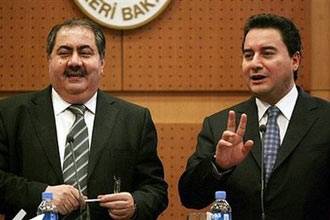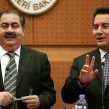
Turkish-Iraqi-American Trilateral Security Mechanism Focuses on PKK Terrorism
Publication: Eurasia Daily Monitor Volume: 6 Issue: 70
By:

The trilateral commission established between Turkey, the United States and Iraq to facilitate security cooperation against the activities of the outlawed Kurdistan Workers Party (PKK) in Northern Iraq continues to operate. However it remains uncertain if it will produce tangible results that satisfy Turkey’s expectations to eliminate the PKK threat. Last week, two Turkish soldiers died in a clash with PKK militants, in which seven terrorists were killed, and this could signal an escalation of the PKK’s militants’ activities ahead of summer. This incident increases the pressure on the governing Justice and Development Party (AKP) to take urgent military measures.
On April 11 Turkey’s Minister of Interior Besir Atalay travelled to Baghdad for a ministerial level meeting of the trilateral commission where he met the Iraqi National Security Minister Shirwan al-Waili and the Charges d’Affairs of the U.S. Embassy in Baghdad, Patricia Butenis (Anadolu Ajansi, April 11, Hurriyet Daily News, April 12). A five-point declaration was subsequently issued, denouncing the PKK as a terrorist organization which endangers the security of all parties. The statement also added that Baghdad will ban the activities of the PKK and its proxy organization in Iraq, the Kurdistan Democratic Solution Party. The commission reviewed its progress, and reaffirmed their determination to continue working on limiting the political, military and media activities of the PKK.
The trilateral mechanism was initiated in November 2008, following a change in Turkey’s anti-terrorist policy against the PKK (Terrorism Monitor, December 8, 2008). Iraqi Kurds, who for a long time had refused to cooperate with Turkey on the issue, also changed their position and joined the process as part of the Iraqi delegation. The Kurdistan Regional Government (KRG) has taken a stronger line since then and promised to curb the activities of the PKK. The Turkish Ministry of Foreign Affairs announced that a branch of the trilateral mechanism will be established in the Northern Iraqi city of Arbil, which highlighted the thawing in Turkey’s relations with the KRG (Today’s Zaman, February 24).
From Ankara’s perspective, the conclusions of last weekend’s meeting will test the commitment of the Iraqi Kurds to the "joint fight against the PKK." During President Abdullah Gul’s visit to Iraq in March, KRG officials expressed their support and offered a plan to disarm the PKK militants in the areas under their control (EDM, March 24, 29). As a further expression of their determination, Iraqi President Jalal Talabani, himself a Kurd, gave Gul a warm welcome and threatened the PKK during their joint press briefing: "either lay down arms, or leave Iraq" (www.cnnturk.com, March 24). The Turkish side interpreted Talabani’s statement as a successful sign for Turkey’s new policies in general and Gul’s visit in particular.
Soon after Gul’s return to Turkey, however, Talabani’s subsequent remarks raised questions about the sincerity of the Iraqi Kurds’ to cooperate. Talabani, who is also the leader of the Patriotic Union of Kurdistan, visited Northern Iraq, where he met Mesud Barzani, the leader of the Kurdistan Democratic Party, who had been travelling in Europe during Gul’s visit. The two leaders discussed relations between the Kurdish groups, as well as the KRG’s ties with the central government in Baghdad. Talabani also briefed Barzani about his contacts with Turkey. Referring to the local Kurdish media, the Turkish press reported that Talabani retracted his earlier position and denied having called on the PKK to "lay down arms or leave Iraq." Talabani argued he was misunderstood and clarified his position by saying that the disarmament of the PKK was Turkey’s proposal and he was simply referring to it (Dogan Haber Ajansi, April 1).
Familiar with the Iraqi Kurdish politicians’ reneging on their promises in the past, the Turkish media covered this development extensively, and the opposition parties criticized the government’s reliance on the Northern Iraqi Kurdish groups to handle the PKK threat (www.haber7.com, April 7). In response to a question on the subject, Gul stated "I would like to believe what Talabani said during the joint press briefing" (Anadolu Ajansi, April 3). Gul later hardened his tone against Baghdad, and in an interview on Iraqi TV he called on the government to keep its promises. Noting that Turkey respected Iraq’s territorial integrity, Gul added "if Baghdad cannot solve this problem, we can… If some of the areas used by [the PKK] are not under the control of the central administration, leave it to us and we will take care of it" (Milliyet, April 11).
Before leaving for Iraq to attend the meeting of the trilateral commission, Atalay said that Turkey expected concrete steps from Baghdad and the Northern Iraqi authorities. According to the Turkish press, the declaration issued after the meeting reaffirmed Talabani’s earlier warning to the PKK, and Atalay emphasized Turkey’s satisfaction with the process, especially his partners’ willingness to continue joint efforts against the PKK presence in Northern Iraq (www.cnnturk.com, April 12).
The dynamics of the recent developments between Ankara-Baghdad-Arbil illustrate the continuity of the AKP’s Kurdish policy and the fight against terrorism. The decline in the AKP’s electoral support within the southeastern provinces in last month’s local elections was interpreted as a failure of the "domestic" pillar of the government’s Kurdish policy (EDM, March 31). If Turkey cannot ensure the compliance of Baghdad and the KRG to deliver on their promises, it will come to be viewed as a serious blow to the "external" pillar of the government’s anti-terrorist policy. Obviously, this situation makes Ankara anxious to secure tangible results from the trilateral process, but uncertainty remains as to whether the declarations will be translated into effective action. What also adds to Ankara’s sense of urgency is the fear that the advent of spring will witness an increase in militant attacks on Turkish military targets, and raise pressure on the government to immediately address the threat posed by the PKK.




